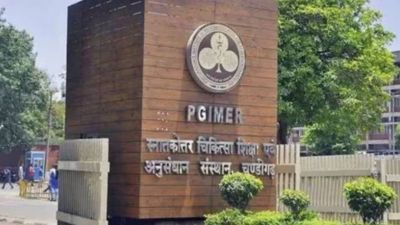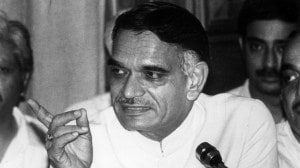In the first Independence Day speech of his third term, Prime Minister Narendra addressed core ideological issues, underlining the need to move towards a “secular civil code” instead of the existent “communal civil code”. Despite the BJP being 32 short of a majority in the Lok Sabha and depending on allies to reach the halfway mark, Modi also made a fresh call for simultaneous elections to the Lok Sabha and state Assemblies.

‘Secular Civil Code’
Reframing the BJP’s demand for a common civil code to do away with the Muslim personal law as a call for a “secular civil code”, Modi said India has had a “communal civil code” for long.
“The Supreme Court has repeatedly discussed a Uniform Civil Code (UCC) in India. It is true that the civil code that we have is a communal civil code. It is based on discrimination. It is our duty to fulfil the vision of our constitution makers,” said the PM.
The framing was a well-thought-out answer to the Opposition’s accusation over decades that the BJP wants UCC because it wants to replace the Muslim personal law on issues such as marriage and inheritance that affect the Muslim community. Recalling that the Constitution placed the vision for UCC in the Directive Principles of State Policy and that the state should strive towards it — Article 44 talks about the need for it — Modi painted the opponents of the idea as the backers of a “communal” civil code, using the language of the Opposition to hit out at it.
One nation, one election
In a clear hint that he would not change his politics because the BJP had fallen short of a majority on its own, Modi once again called for simultaneous elections at the Lok Sabha and the state Assemblies. He pointed out that the Ram Nath Kovind Committee, which had been set up to study the idea’s feasibility, had given a good recommendation for the same.
“Frequent elections are creating a problem for the country. Policies and work are being associated with elections. There have been discussions on this. One nation, one election is important. I appeal to political parties and those who understand the Constitution that we should move towards one nation, one election,” said the PM.
Story continues below this ad
However, if the Kovind Committee report is considered the template for simultaneous polls, simultaneous polls will not be possible in the 18th Lok Sabha. The panel said a Presidential notification would have to come on the first day Parliament meets after a Lok Sabha election, laying down the last date of the said Lok Sabha. This has not happened and the PM’s statement may thus be more about emphasising continuity with his last term when the BJP had 303 seats. This bid for continuity has been reflected in the choice of the Lok Sabha Speaker and key Union Cabinet positions.
Women’s safety
Modi made an indirect reference to the rape and murder of a trainee doctor at the RG Kar Medical College and Hospital in Kolkata, saying state governments should ensure quick action when there are instances of atrocities against women.
“There are a few points of worry too. Our women are being tortured. There is anger among the people and I can feel it. There must be quick investigation and punishment against those who abuse women. There is a lot of news when there is an incident, but there is no talk of offenders being punished. This is why there is no fear. We need to instil a sense of fear amongst those abusing women,” said the PM.
War on corruption
In an oblique defence of central agencies acting against some Opposition leaders — Delhi Chief Minister Arvind Kejriwal is in jail while Jharkhand CM Hemant Soren and former Delhi Deputy CM Manish Sisodiya are out on bail — Modi said citizens were tired of corruption and that he was waging a war against it.
Story continues below this ad
“Every citizen is tired of corruption. We have waged a war on it and I have to pay a price for it, but there is no price to pay when it comes to the nation. My fight against the corrupt will continue,” he said. Taking what seemed a dig at the Opposition that has accused him of going after political opponents by misusing agencies for vendetta, Modi said, “Can anyone imagine that there are some people who are supporting corruption in broad daylight? This is a major challenge.”
In a veiled attack on dynastic politics, something that his party has always accused the Congress and the Nehru-Gandhi family of, PM Modi said that there was a need to bring into politics one-lakh such youth whose families have no political background. He said this number should spread from representatives of panchayats to Parliament, saying that the entry of such people into politics would bring fresh ideas into politics.
Message for Bangladesh
Days after appealing for the safety of Bangladeshi Hindus when he congratulated Mohammad Yunus on taking charge after Sheikh Hasina fled the country facing an uprising, Modi had a message for the neighbouring country.
“I hope things will soon be normal in Bangladesh. Our 140-crore people want the Hindus of Bangladesh, the minorities there, to be safe. We want our neighbouring countries to tread the path of peace and happiness. We will remain well-wishers of Bangladesh,” said the PM.

































